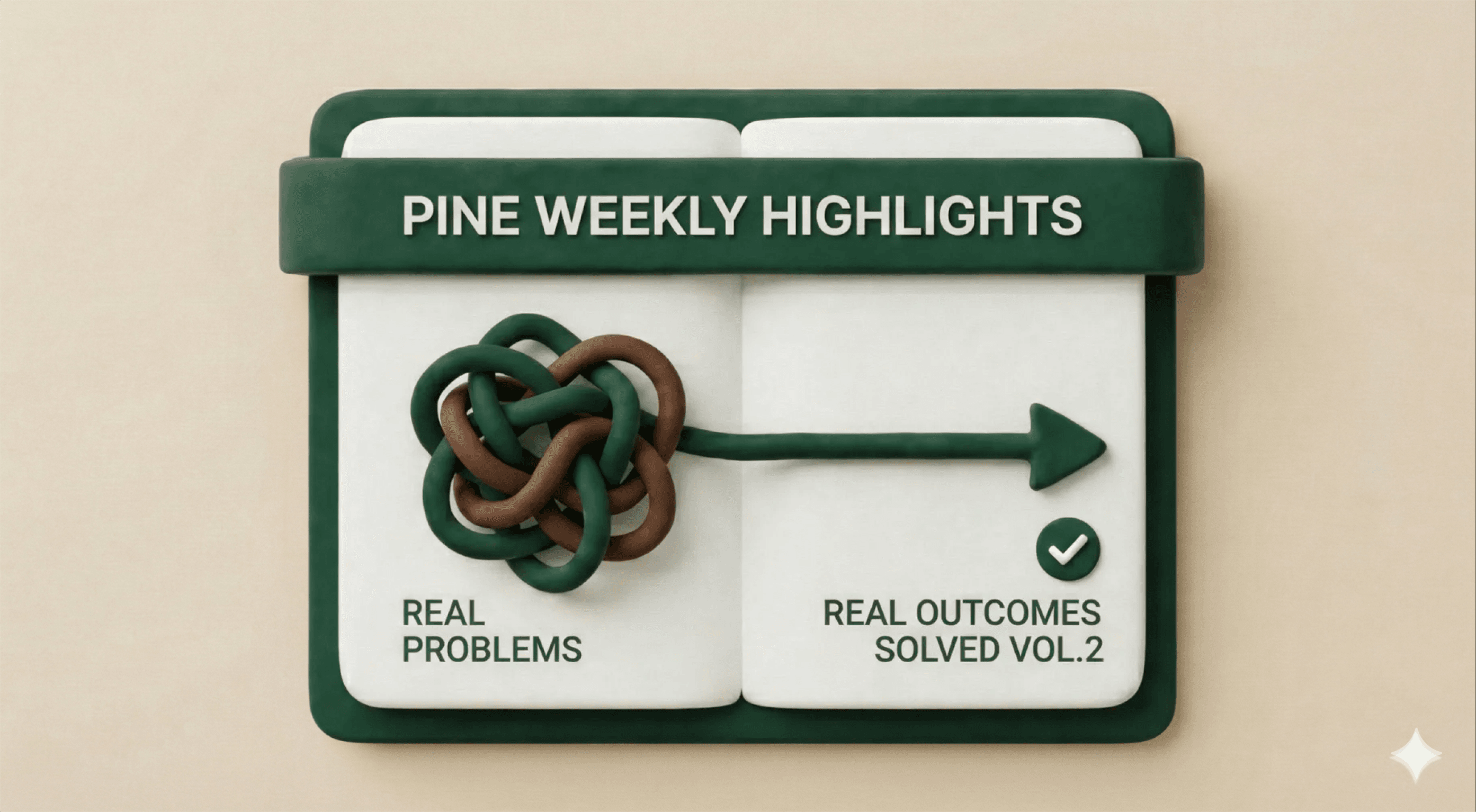Why Switch from Quicken Simplifi?
Quicken Simplifi has been around since 1983, making it the grandpa (or grandma) of personal finance software. It’s known for its desktop tools that help you track everything from spending and investments to property value. For decades, it was the go-to for a complete financial picture. But let's be real, the game has changed. Many users are now searching for a Quicken Simplifi alternative because the software can feel clunky and the subscription model just doesn't sit right with everyone.
So, why are people looking for something new?
- Forced Subscriptions: Quicken Simplifi shifted to a subscription model in 2018, which means you have to pay every single year, for the whole year in advance. In a recent research from Secure Data Recovery, 90% of respondents saying companies have "gone too far", many feel that subscriptions add no value and adding one for a legacy software that was free for so long feels backwards to some.
- Customer Support Issues: Trying to get help can be a massive headache, with one person on Better Business Bureau reviews noting they wasted 40+ hours being transferred from agent to agent. Quicken's Better Business Bureau page shows only 17 complaints closed in the last 12 months, however the company IS NOT Better Business Bureau accredited. Its Trustpilot score is an average 3.7 out of 5, with users citing poor service and unresolved bugs.
- Syncing Nightmares: A common complaint is the software's failure to reliably sync with bank accounts. If your financial app can't even get this right, it becomes more of a liability than a tool. I mean, really?
What Features to Look for in a Quicken Simplifi Alternative
When you’re looking for other options than Quicken Simplifi, don't just download the first app with a slick logo and a cool one liner. You need to look for something that actually makes your life easier, not just another dashboard to check and review at the end of each month. Based on current trends, here’s what really matters.
- Autonomous Financial Health: The app should work for you in the background, all the time.
- Proactive Problem Solving: It spots issues and offers you real solutions and then gets them for you.
- Gives You Back Your Time: Less manual work, more time for things you enjoy. A set it and forget it app.
- Real-World Financial Support: Helps with annoying tasks like negotiating bills and refunds.
Best 9 Alternative Options to Quicken Simplifi
There are plenty of solid choices out there, here’s a quick rundown of the top nine contenders:
- Pine AI: An AI assistant that takes on the frustrating financial tasks for you, like negotiating bills, refunds and canceling subscriptions.
- Empower (formerly Personal Capital): Great for a high-level view of your net worth and investments.
- YNAB (You Need a Budget): A favorite for people who want to get meticulous about budgeting.
- PocketGuard: Helps you see how much you "have left to spend" taking in income, bills and savings.
- Tiller Money: For spreadsheet fans who want to automate their budgets in Google Sheets or Excel.
- Dollarbird: A calendar-based approach to tracking your income and expenses.
- Credit Karma: Good for keeping an eye on your credit score and getting basic financial insights.
- Monarch Money: A modern, collaborative tool for couples and families to manage money together.
- Qapital: Makes saving money feel like a game with its rule-based savings triggers.
Quick Comparison: Top 9 Quicken Simplifi Alternatives (2025)
| App Name | Category | Key Features | Pricing | Platforms |
|---|---|---|---|---|
| Pine AI | AI Bill Negotiator | - AI-powered bill negotiation - Subscription cancellation - Complaint filing |
Free to use, charges a % of savings | Web, iOS |
| Empower | Investment Tracker | - Net worth tracking - Retirement planner - Investment fee analyzer |
Free tracking tools, fees for advisory services | iOS, Android, Web |
| YNAB | Budgeting App | - Zero-based budgeting - Goal tracking - Educational resources |
$14.99/month or $99/year | iOS, Android, Web |
| PocketGuard | Spending Tracker | - "In My Pocket" feature - Bill and subscription tracking - Debt payoff planner |
Free version, Plus is $12.99/month or $74.99/year | iOS, Android, Web |
| Tiller Money | Spreadsheet Budgeting | - Automated transaction import - Customizable templates - Daily email summaries |
$79/year | Web (integrates with Google Sheets & Excel) |
| Dollarbird | Calendar-Based Budgeting | - Calendar interface - AI-powered categorization - Collaborative features |
Free version, Pro is $39.99 and Pro Unlimited is $59.99/year | iOS, Android |
| Credit Karma | Credit Monitoring | - Free credit scores and reports - Credit monitoring alerts - Financial product recommendations |
Free | iOS, Android, Web |
| Monarch Money | Collaborative Budgeting | - Shared household dashboard - Goal planning - Investment tracking |
$14.99 per month or $99.99 annually. Source | iOS, Android, Web |
| Qapital | Automated Savings | - Rule-based savings - Joint savings goals - Investing tools |
Tiered plans at $3, $6, or $12 per month. Source | iOS, Android |
Detailed App Breakdowns
Pine AI
Pine AI showed up about a year ago to fix the one thing most finance apps don't: the actual work of saving money. It’s for anyone who is sick of spending hours on hold with customer service. Instead of just showing you charts and spreadsheets of your spending or overspending, Pine AI actually calls companies for you to lower your bills, get refunds, cancel subscriptions, and file complaints. This app's function of doing the "dirty work" is definitely its stand-out feature. This is a huge deal when you think about shrinkflation, where companies are constantly hoping you won't notice you're paying more and getting less.
Spoiler Alert: We've put Pine AI at the top. Why? Because while Quicken shows you where your money goes, Pine AI does the work to get some of it back by negotiating your bills for you. It's a feature Quicken just doesn't offer and a strong reason to consider it as an alternative.
- Best for: Automatically fighting for your money back, getting refunds and reducing overinflated bills.
- Key Features: AI-powered agents that call companies on your behalf, bill negotiation for services like internet and cable, subscription cancellation.
- Pros: Saves you a ton of time and frustration. No upfront cost. You only pay if they save you money.
- Cons: A newer service, so it's still building its public track record. Only available on iOS and the web right now.
- Pricing: Free to sign up. Pine AI takes a percentage of the money they save you. (Source: 19pine.ai as of November, 2025)
- Who it’s for: Anyone who hates dealing with customer service and wants someone else to do it for them.
Empower
When it launched in 2009 as Personal Capital, Empower’s goal was to give a clear picture of your entire financial life, especially for people with investments. It’s still one of the best tools for tracking your net worth and retirement goals. They recently won "Best App for Tracking Investments" from U.S. News & World Report (Source: U.S. News, April 2024). The dashboard is clean and makes complex investment data easy to understand, which is a huge plus because many other apps make you feel like you need a finance degree to check your portfolio. Not for you if you need help with daily budgeting.
- Best for: Getting a 30,000-foot view of your investments.
- Key Features: Net worth tracker, retirement planner, investment fee analyzer.
- Pros: Excellent free tools for tracking, detailed investment analysis, clean interface.
- Cons: Budgeting features are pretty weak. Constantly tries to upsell you to their paid advisory service.
- Pricing: Free for the tracking tools. Advisory services have a management fee starting at 0.89%. (Source: Empower as of November, 2025)
- Who it’s for: DIY investors who want to track their progress towards retirement without paying a dime.
YNAB (You Need a Budget)
YNAB started in 2004 and has an almost cult-like following. It's built on a simple but powerful idea: give every dollar a job. This isn't a passive tracking app, it forces you to be intentional with your money. I tried it after a particularly expensive holiday season, and it was a real wake-up call about where my money was actually going. The learning curve is steep, and if you aren’t fully committed to their specific method of assigning every single dollar to a category, you’ll probably find the whole process incredibly tedious and time-consuming.
- Best for: Hardcore budgeters who want total control.
- Key Features: Zero-based budgeting system, detailed goal tracking, extensive library of workshops and guides.
- Pros: Proven method for getting out of debt. Strong community support. Helps change your spending habits.
- Cons: Expensive compared to other options. Requires a lot of manual input and commitment.
- Pricing: $14.99 per month or $99.99 per year. (Source: YNAB as of August, 2025)
- Who it’s for: People who are serious about getting their finances in order and are willing to put in the work.
PocketGuard
PocketGuard launched in 2015 to answer a simple question: how much can I spend right now? It connects to your accounts, looks at your bills and income, and then shows you what's "in your pocket" for daily spending. It's a straightforward approach that can help prevent overspending. Weirdly, this only worked well on my phone and not on the web app. It’s a good app for beginners who feel overwhelmed by more complex budgeting tools.
- Best for: A simple snapshot of your daily spending money and taking control of it.
- Key Features: "In My Pocket" spending limit, automated bill and subscription tracking, debt payoff planner.
- Pros: Easy to set up and use. Provides a clear picture of your disposable income. Good for preventing impulse buys.
- Cons: Limited customization options. The free version is very basic.
- Pricing: Free version available. Plus is $12.99 per month or $74.99 per year. (Source: PocketGuard as of November, 2025)
- Who it’s for: Students or young professionals who just want a simple way to stay on top of their spending.
Tiller Money
Tiller popped up in 2016 to serve the needs of people who love spreadsheets - isn't that all of us? It’s one of the best apps that is better than Quicken if you want to build your own system. It automatically pulls all your transactions from your bank and credit cards into a Google Sheet or Excel file. I love this idea, but you have to be comfortable working in a spreadsheet to get the most out of it. The sign-up flow just wasn't intuitive, at times quite frustrating. Tiller provides a ton of templates to get you started, but the real power comes from being able to create your own custom reports and dashboards, so you have to be up for that.
- Best for: Spreadsheet enthusiasts who want to automate their budget.
- Key Features: Automatically imports daily transactions into Google Sheets or Excel, providing a library of templates, highly customizable.
- Pros: Total control and flexibility. Leverages the power of spreadsheets. Keeps all your financial data in one place.
- Cons: Requires extensive spreadsheet knowledge. No mobile app (you use the Google Sheets/Excel only).
- Pricing: First 30 days free, after that $79 per year. (Source: Tiller Money as of November, 2025)
- Who it’s for: Data nerds who want to build a completely personalized financial dashboard from scratch and do it on a spreadsheet.
Monarch Money
Monarch Money launched in 2018 as a modern alternative to apps like Mint and Quicken, and it’s gained a lot of traction since Mint shut down. It’s designed for collaboration, making it easy to share your financial picture with a partner or family members. It has a clean, ad-free interface and lets you set up a shared dashboard to track goals together. I found it to be one of the better designed apps out there, and it handles everything from budgeting to investment tracking without feeling cluttered, which is a problem many older personal finance tools have struggled with for years. A solid all-rounder.
- Best for: Couples and families managing finances together.
- Key Features: Collaborative dashboard for households, customizable budgeting and goal setting, holistic view of all your accounts.
- Pros: Ad-free experience. Strong focus on collaboration. Modern and intuitive design.
- Cons: It's one of the more expensive options. Some users have reported occasional issues with bank connections.
- Pricing: $14.99 per month or $99.99 annually (if paid in full, plus tax where applicable). (Source: Monarch Money as of November, 2025)
- Who it’s for: Partners and families who want a single, modern app to manage their shared financial life.
Credit Karma
Credit Karma was founded in 2007 and is mostly known for giving out free credit scores. In December 2020, it was acquired by Intuit (the parent company of TurboTax and QuickBooks) for about $7 billion. Over the years, it's added more features, like basic spending tracking and a net worth calculator. It’s a useful tool for a quick financial check-up, but it's not a true budgeting app. The app makes money by recommending credit cards and loans to you, so you have to put up with a lot of ads which is a big turn-off for a lot of people. It’s a good starting point just to track your credit score.
- Best for: Keeping a casual eye on your credit health.
- Key Features: Free credit scores and reports from two major bureaus, credit monitoring alerts, personalized product recommendations.
- Pros: Completely free to use. Easy way to track your credit. Good educational content.
- Cons: Not a budgeting tool. Filled with ads. Net worth and spending tools are very basic. Only reports from Equifax and TransUnion, not Experian.
- Pricing: Free (supported by ads and commissions). (Source: Credit Karma as of November, 2025)
- Who it’s for: Anyone who just wants to understand their credit score without having to pay for it.
Qapital
Qapital was founded in 2012 with a focus on making saving effortless and even fun. It uses a rule-based system to help you save money without thinking about it. For example, you can set a rule to round up your purchases to the nearest dollar and save the change. It's a great way to build up savings for a specific goal, like a vacation or a down payment. The gamified approach is effective, but it's not a comprehensive budgeting tool and the monthly fees can eat into your savings if you're not careful.
- Best for: Effortlessly saving for specific goals in a gamified way.
- Key Features: "Set & Forget" savings rules, shared savings goals with a partner, integrated investing options.
- Pros: Makes saving automatic and fun. Highly motivating for visual goal-setters. Flexible rules to fit your lifestyle.
- Cons: Monthly fees can add up. Not a full-featured budgeting app. Investment options are limited. Users also complain of connectivity issues, account lockouts and bad customer service support.
- Pricing: Tiered plans at $3, $6, or $12 per month. (Source: Qapital as of November, 2025)
- Who it’s for: People who struggle to save money consistently and need a little push to get started.
Dollarbird
Dollarbird, founded in 2011, takes a different approach by using a calendar to track your finances. You add your recurring income and bills to the calendar, and it projects your future bank balance. It’s a very visual way to see how your spending decisions today will impact you down the road. It’s a simple concept. While the calendar view is neat for planning, I found manually entering every single transaction to be a huge pain, especially when so many other apps on this list are able to do it automatically for you. It doesn't connect to any of your accounts, which can be good and bad.
- Best for: Visually planning your future cash flow.
- Key Features: Calendar-based interface, AI-powered expense categorization, collaborative features for sharing with a partner.
- Pros: Intuitive for people who think in terms of dates. Helps with financial forecasting. Clean and simple design.
- Cons: Lacks automatic transaction syncing from banks. Relies heavily on manual data entry. Can't account for unforseen expenses.
- Pricing: Free version available. Pro is $4.99 a month or $39.99 per year, or Pro Unlimited is $6.99 a month or $59.99 per year. (Source: Dollarbird as of November, 2025)
- Who it’s for: People with regular income and expenses who want to plan their cash flow carefully.
How Pine AI could be the alternative solution for Quicken
Look, tracking your money is one thing, but actually saving it is another. Quicken and many alternatives are great at showing you where your money went or is going in the future. Pine AI is different; it helps you get some of that money back. And we all want that, right? Don't waste your time being your own advocate when you can have an AI do it for you.
- Someone in Your Corner: I dread doing all this manual work when I could be doing something better with my time. Pine AI acts like your personal negotiator. They have the data and the expertise to know what kind of deals are possible. You’re not just tracking your expenses, you’re actively cutting costs.
- Security Matters: You're giving these apps a lot of sensitive information. Pine AI uses bank-level security and only needs the info required to negotiate your bills and get your refunds, not your entire financial history.
- Real Results: At the end of the day, the goal is to have more money in your pocket. A recent study found that 46% of consumers who tried to negotiate a bill on their own failed to get any discount (Source: LendingTree, May 2024). Most of us just give up and pay. Using a service just makes sense.
Methodology: How We Selected the Best Alternatives to Quicken
Our list isn't random. To find the best apps that exist currently in 2025, our team evaluated over 20 popular financial apps based on four key criteria, focused particularly on replacing Quicken:
- Effectiveness & User Success: Does the app actually help people manage their finances, based on user reviews and our own experiences? We looked for apps that deliver real, measurable results, whether that's a lower cable bill or a healthier retirement account.
- Ease of Use: How intuitive is the app for a beginner? We prioritize apps that don't require a finance degree. If you have to read a manual to figure it out, it's not on this list.
- Security & Trust: Does the app use bank-level encryption and have clear privacy policies and terms of use? We only included apps that take your data security seriously.
- Value for Cost: Is the price (if any) justified by the features and potential savings? A $10/month app should save you more than $10 a month. Simple as that.
Frequently Asked Questions about Quicken Alternatives
What popular features are there that Quicken don’t offer that other competitors do?
Many newer apps offer automated bill negotiation, AI-powered savings suggestions, and collaborative tools for couples, which are things Quicken and Simplifi lack.
What should I consider when leaving the Quicken app?
Make sure you export your historical data. If Quicken has years or even decades of your financial life, you'll want a backup before you make the switch.
What apps to use to replace Quicken?
"Better" depends on your needs. For AI-powered savings and budgeting, Pine AI is a strong choice. For hardcore budgeting, YNAB is hard to beat. For investing, Empower is great.
What apps would complement well with Quicken app?
You could use Quicken for historical data and investment tracking, and an app like Pine AI to actively lower your monthly bills.
Are there any security concerns I should be aware of with Quicken?
Like any financial software, there's always a risk. Quicken has been trusted for a long time, but you should always use strong passwords and two-factor authentication.
Can I export my data from Quicken to another app?
Yes, but it can be tricky. Quicken lets you export to a QIF or QXF file, but not all competing apps can import these formats smoothly. Always check the new app’s import capabilities first.
Sources
- https://www.bbb.org/us/ca/menlo-park/profile/computer-software-developers/quicken-inc-1116-874267/complaints - Quicken Inc. - BBB (Better Business Bureau) Complaints
- https://www.quicken.com/blog/this-is-quicken-at-40/ - Refreshed. Revamped. Renewed. This is Quicken at 40 - Official Site
- https://uk.trustpilot.com/review/www.quicken.com - Quicken Reviews - Read Customer Service Reviews from Trust Pilot
- https://www.securedatarecovery.com/blog/the-most-annoying-subscriptions - New Study Unveils the Subscriptions Americans Find Most Annoying
- https://www.19pine.ai/ - AI Assistant to Handle Bills, Subscriptions, and Complaints from Pine AI - Official Site
- https://www.empower.com/tools - Empower - Official Site
- https://www.ynab.com/pricing - YNAB Pricing - Official Site
- https://pocketguard.com/pricing/ - Pocket Guard Pricing - Official Site
- https://tiller.com/pricing/ - Tiller Pricing - Official Site
- https://www.monarchmoney.com/pricing - Monarch Money - Official Site
- https://www.creditkarma.com/ - Credit Karma - Official Site
- https://www.qapital.com/pricing/ - Qapital - Official Site
- https://dollarbird.co/ - Dollarbird Pricing - Official Site
Disclaimer about this blog post: This article was last updated on November 17, 2025. We do our best to keep our content accurate and fresh, but the digital world moves fast. Information, especially details like pricing and app features, is often sourced from third-party sites and may change without notice.
If you see something that looks out of date or incorrect? Please let our team know by contacting us and we'll get it updated as soon as possible.






